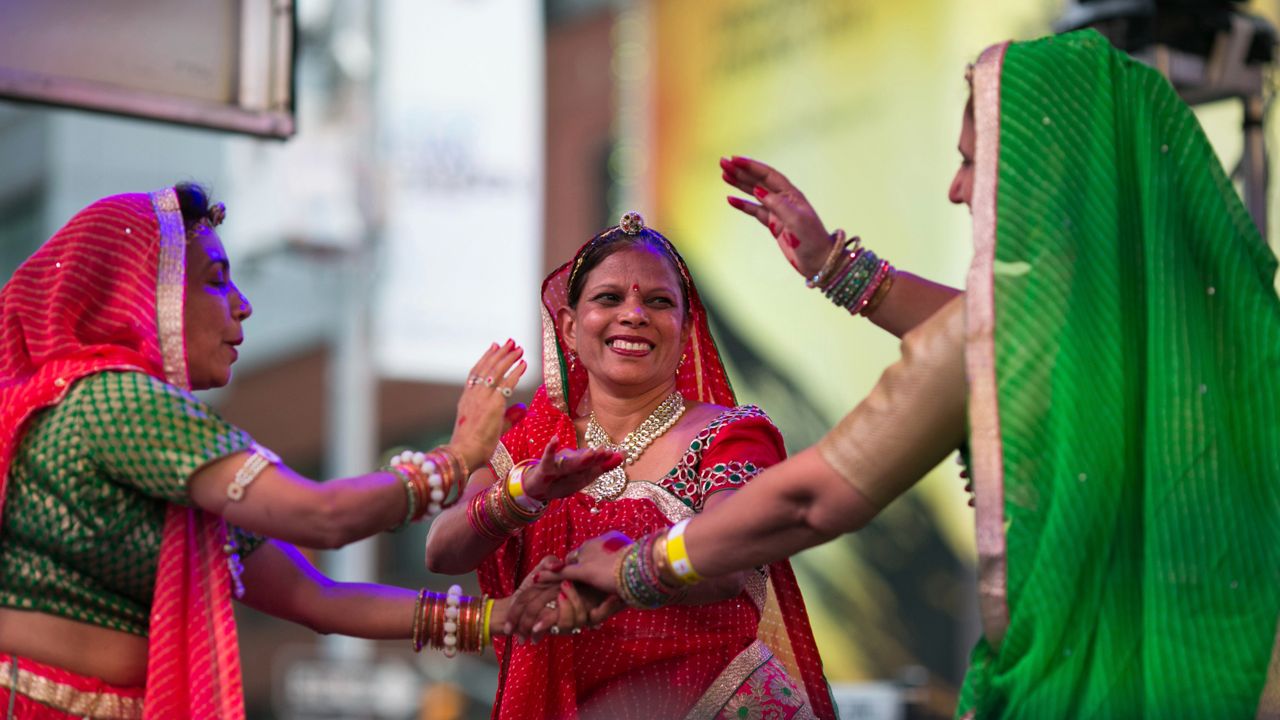The festival of Diwali is almost here. Below is a guide to the holiday, including ways to celebrate in the city.
What is Diwali?
Diwali, India's biggest and most important holiday of the year, is a festival of lights that celebrates the triumph of light over darkness, good over evil and the human ability to overcome.
Diwali has become a national Indian festival. Outside of India, Hindus, Sikhs, Jains, Buddhists and others across the world celebrate the holiday. According to Queens Assemblywoman Jenifer Rajkumar, the first South Asian-American woman ever to be elected to a New York state office, an estimated 200,000 New Yorkers celebrate Diwali.
The festival is associated with Lakshmi, the Hindu goddess of wealth, prosperity and good fortune. It is customarily celebrated for five days.
The word Diwali comes from the Sanskrit word deepavali, meaning "rows of lighted lamps," according to the BBC.
When is Diwali?
The festival of Diwali takes place for five days. This year, the main day of the festival — when most of the festivities take place — falls on Friday, Nov. 1.
What is the history of Diwali?
Diwali commemorates something different for each Indian belief system.
According to the Hindu American Foundation, it honors the return of Prince Rama of Ayodhya, his wife, Sita, and brother, Lakshman, from a 14-year-long exile and a battle against King Ravana that Prince Rama won; for Jains, it is the day when Lord Mahavira, the last of the Jain Tirthankaras, achieved nirvana; for Sikhs, it marks the freeing of Guru Hargobind, the sixth guru, from Emperor Jahangir; and for Buddhists, it is commemorated as Ashok Vijayadashami, the day the great Emperor Ashoka embraced Buddhism as his faith.
What are some of the traditions of Diwali?
During the festival, lamps are lit in streets and in houses to signify light overcoming darkness. Fireworks are lit as part of many celebrations, too.
It is also customary to decorate homes with rangoli, which are traditional works of Indian art. They are traditionally made with sand, rice or flower petals, according to the Hindu American Foundation. Many place the ancient Hindu art in their homes.
Finally, many families come together, go to temple, exchange gifts, donate to charity and have feasts.
Is Diwali a school holiday?
After decades of lobbying, Diwali is finally a school holiday in New York City. Mayor Eric Adams announced the change last year at a City Hall event with other politicians.
Since Diwali falls on a Friday this year, schools will be closed.
How is Diwali celebrated in the city?
There are countless Diwali celebrations in the city planned in the coming days, including the following events:
- The Asia Society is hosting a Diwali celebration featuring music, dance performances, storytelling, arts and crafts and food on Saturday, Oct. 26, from 1 p.m. to 4 p.m.
- The Bhakti Center, a spiritual cultural center on the Lower East Side, is hosting their seventh annual Diwali festival on Friday, Nov. 1, from 5 p.m. until 9 p.m. The event will feature a traditional Indian musical dance performance, stalls that sell Indian street food and drinks, face painting and a photo booth.
- The 53rd Street Library in Manhattan is having a Diwali puppet show on Friday, Nov. 1, from 11:30 a.m. to 12:30 p.m. The event includes interactive storytime trivia and arts and crafts. No registration is required. Participants will meet in the Theater Area.
Many other upcoming Diwali celebrations are planned at museums, parks, clubs, restaurants, temples and libraries.
